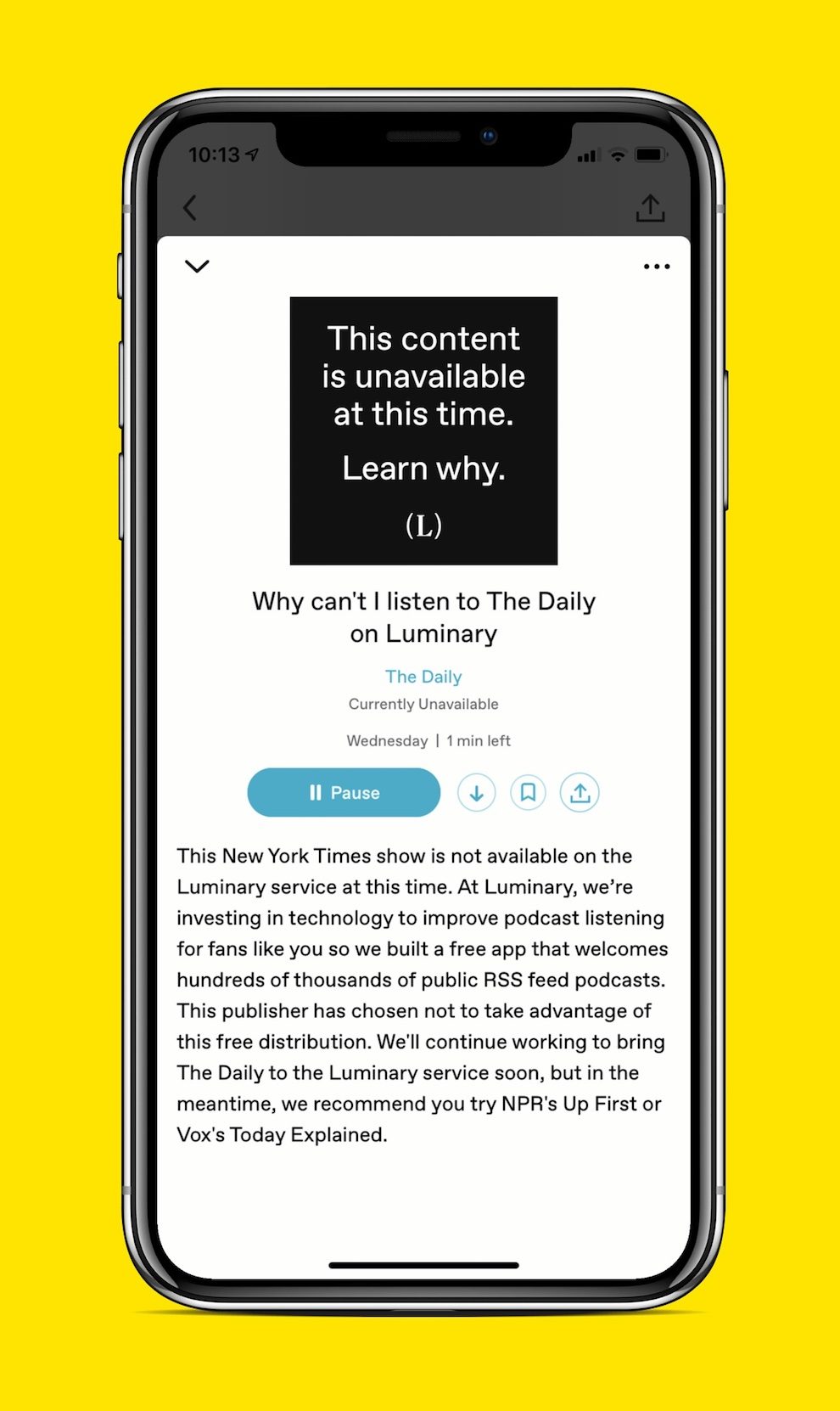
The Joe Rogan Experience, one of America’s most popular podcasts, has requested to be removed from Luminary, the new $8-a-month premium podcast platform, I’ve confirmed. The show explicitly cites licensing issues as the reason behind the intent to withdraw: “There was not a license agreement or permission for Luminary to have The Joe Rogan Experience on their platform,” a representative told me last night. “His reps were surprised to see the show there today and requested it be removed.”
Luminary declined to comment for this story. (At publication time, Rogan’s show is still available in the app.)
If the request is honored, The Joe Rogan Experience would be yet another high-profile show to actively withdraw from the free tier of the app, following The New York Times’ The Daily and Spotify’s various show assets, including programming from Gimlet Media and Parcast. (Hat tip to The Verge, which broke the Spotify and The Daily pullouts Monday.)
It’s also another massive podcast, along with The Daily, to do so. Now almost a decade old, the Joe Rogan Experience is widely thought to be among the most downloaded and consequential podcasts in operation. Apple has listed the show as one of the 20 most-downloaded podcasts on its platform in both 2017 and 2018, and the show routinely drives headlines off its distinctly Dark Web-ish politics and attention-grabbing booking prowess, with a guest list that has included Elon Musk, Sam Harris, Mike Tyson, and the conspiracy theorist Alex Jones. Last month, Slate published a lengthy story on the show, calling it “an essential platform for ‘freethinkers’ who hate the left.”
It’s worth noting that Luminary won’t be the only podcast-distributing platform to not have The Joe Rogan Experience; in fact, the podcast is missing from Spotify as well. But the show’s absence on Luminary — as part of what appears to be a broader cascade of publisher withdrawals — will surely sting the upstart more. As I’ve pointed out, it’s likely that Luminary’s audience strategy relies on using its free tier to bring people into the app in the first place, after which the app will try to push them down the paid funnel. Losing access to some of these bigger shows certainly complicates the first part of that equation.
Anyway, not to be gauche, but I think this development further supports the analysis I laid out in yesterday’s column: The industry push-back to the Luminary launch that we’re seeing is less an overt expression of the brewing podcast platform war, but the result of more mundane procedural breakdowns around licensing agreements. Furthermore, my sense is that this story treads less on the question about who gets to do what under the soft cultural tenets around podcasting and openness, and is more about the line beyond which an action becomes exploitative of someone else’s intellectual property.
What a rough rollout for Luminary, yikes. It will continue to be rough, too, as The Joe Rogan Experience isn’t the only publisher outside of The Daily and Spotify that’s withdrawn from the platform. If you poke around the app, you’ll find that shows from the recently-launched Endeavor Audio are also blacked out as well. And it’s likely there will be others more to come.